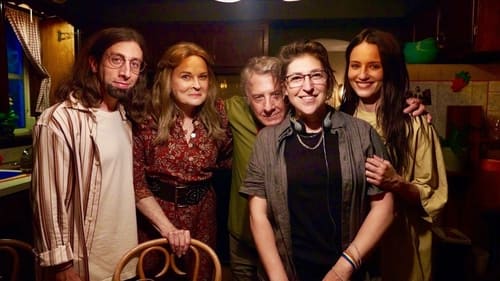
Karen
Abigail, a divorced mother of two, is struggling to balance the dynamics within her dysfunctional family as she attempts to cultivate new love.

Co-Producer
Women migrant workers from Mexico stand by the roadside and hope to find some work, the same way crowds of unemployed Americans used to stand during the Great Depression. One of them, Fernanda, gets lucky - she is hired into a Hasidic family. There Nechama, a young mother who becomes suspicious that Fernanda is lazy, discovers that a chauvinistic Jew from the recruiting agency doesn’t pay the cleaning lady. Fernanda explains herself in broken English, and even though she and her new friend might not be able to obtain any justice, they at least will be capable of revenge. Mutual understanding will prove to be stronger than the class division of society, as is right and proper. Isn’t this the kind of reconciliation across genders and cultures that the United States, and subsequently the entire world, are hoping for?

Screenplay
Women migrant workers from Mexico stand by the roadside and hope to find some work, the same way crowds of unemployed Americans used to stand during the Great Depression. One of them, Fernanda, gets lucky - she is hired into a Hasidic family. There Nechama, a young mother who becomes suspicious that Fernanda is lazy, discovers that a chauvinistic Jew from the recruiting agency doesn’t pay the cleaning lady. Fernanda explains herself in broken English, and even though she and her new friend might not be able to obtain any justice, they at least will be capable of revenge. Mutual understanding will prove to be stronger than the class division of society, as is right and proper. Isn’t this the kind of reconciliation across genders and cultures that the United States, and subsequently the entire world, are hoping for?

Nechama
Women migrant workers from Mexico stand by the roadside and hope to find some work, the same way crowds of unemployed Americans used to stand during the Great Depression. One of them, Fernanda, gets lucky - she is hired into a Hasidic family. There Nechama, a young mother who becomes suspicious that Fernanda is lazy, discovers that a chauvinistic Jew from the recruiting agency doesn’t pay the cleaning lady. Fernanda explains herself in broken English, and even though she and her new friend might not be able to obtain any justice, they at least will be capable of revenge. Mutual understanding will prove to be stronger than the class division of society, as is right and proper. Isn’t this the kind of reconciliation across genders and cultures that the United States, and subsequently the entire world, are hoping for?



